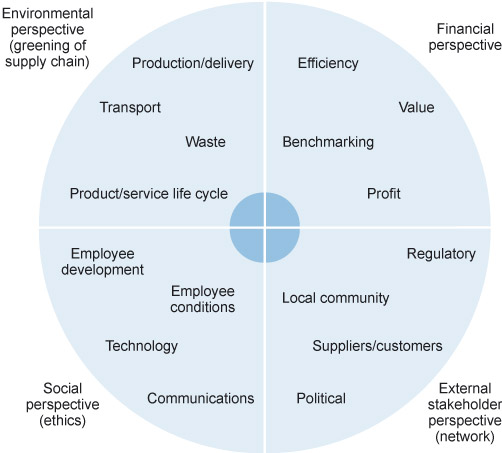1 What do we mean by the term ‘sustainable supply chain’?
Let's start this course by having a closer look into what is actually meant by ‘sustainability’. The term is increasingly used in business, and generally it is used to indicate something good and positive about an organisation, process or product. But what does it really mean?
Think about the word ‘sustainable’ for a moment. What are the first things that come to mind? Here is a list of some possible answers:
- environmentally friendly
- lasting a long time
- continually growing
- organic
- biodegradable
- single earth living.
You may have come up with a very different list of words or ideas that mean something for you. This illustrates the difficulty with talking about sustainability. We all have a clear, but probably different (personal), view of what ‘sustainable’ means to us.
With this in mind, let’s now set out some common thoughts on what sustainability refers to in a business context. Crandall et al. (2015, p. 602) use the following definition: ‘sustainability, for a business, is the ability to keep operating successfully’. To these authors, a sustainable business is a business that can keep on doing its business. Anderson (2006) defines sustainable development as ‘development that meets the need of the present world without compromising the ability of the future generations to meet their own needs’ and give another angle to sustainability: that of not negatively impacting on future generations.
In sum, sustainability thus refers to an organisation’s ability to keep operating successfully without compromising the ability of future generations to meet their own needs.
In the following sections, you will review four perspectives of supply chain sustainability: the environmental perspective, the financial perspective, the social perspective and the external stakeholder or network perspective. These perspectives are illustrated in Figure 1.

